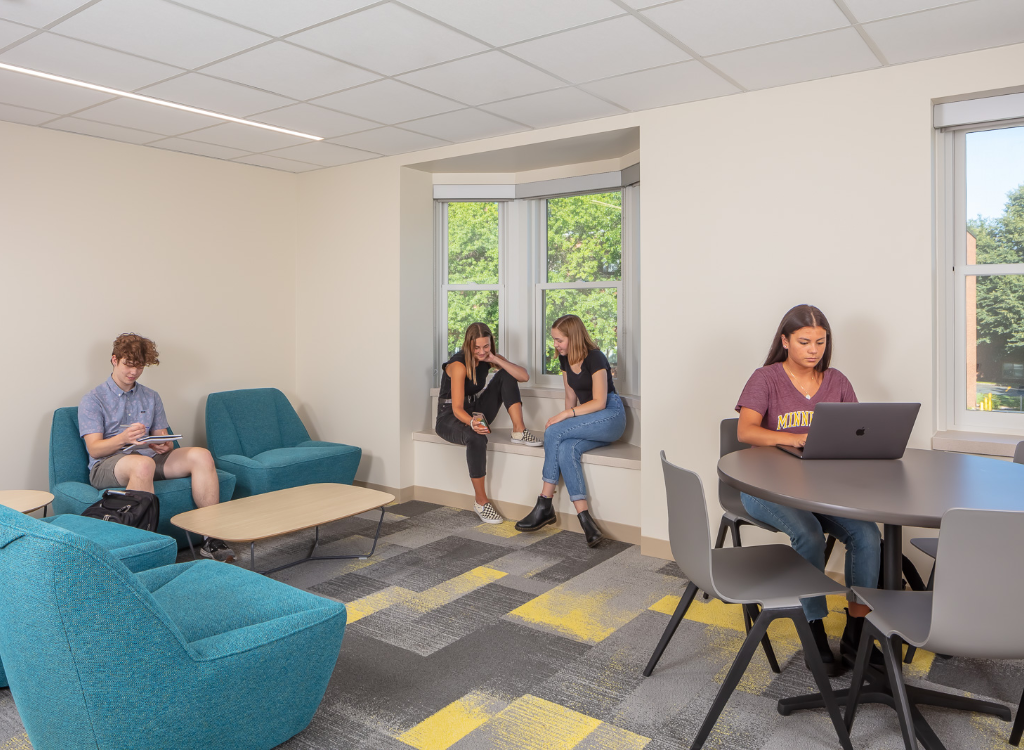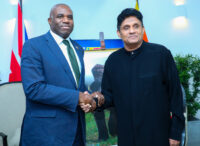Call them workshy, call them sensitive, call them standoffish, but Gen Z – those born between 1997 and 2012 – have a strong grasp on what they want, especially when it comes to the workplace.
In my (admittedly) quite limited encounters with colleagues in that much-maligned age bracket, I’ve been impressed rather than dismayed at their ability to set hard boundaries in their jobs – boundaries I only wish I’d had the confidence to set when I was first entering the workforce.
One of them, is rejecting the pressure to be friends (“we’re one big family!”) with people you happen to share an office with.
We all know that you can’t choose your co-workers. But for many older generations, they’ve nevertheless felt pressure to be friendly with their colleagues – to discuss their personal lives, to go the pub, to share gossip, to go beyond purely professional relationships – and for some members of Gen-Z, that couldn’t be more of a glaring issue.
And as Gen Z enter employment in greater numbers (this year, they’re estimated to make up more than a quarter of the world’s workforce), their approaches will start to have more of an impact on how everyone else operates.
Kent-based apprentice electrician, Freddie, 19, is one of these workers. “I never see myself being long-term friends with people at work because it feels forced,” he says. “They aren’t people I get on with on a deeper level. I’m not interested in what they’re interested in, so it’s hard to insert myself in conversations.”
While he admits he has managed to make friends with a diverse group of colleagues in “less serious, part-time roles” in the past, in his current job, “lad culture” and cultural differences – he is the only black member of his all-white team – have kept him from expanding his social circle.
“I enjoy my work and focus on what I have to do, but I struggle to have fun. I’ve gone to some events to try to be social, like amusement parks or restaurants, but most of the time I don’t look forward to them. My colleagues are a lot louder and more immature than I am. Their banter is odd and I find them all a bit weird.”
A 2024 survey of 2,000 UK office workers by Colony suggests that younger employees struggle more than any other group with making connections, with 37 per cent saying they find it harder to make friends in the office.
Gen-Z recruitment assistant Jasmine Burobey-Shenton has learned to embrace socialising with colleagues in recent years
The pandemic, in part, could explain why some Gen Z’s are less adept at work socialising. Reports of pandemic-related soft-skills gaps paint a picture of people who have difficulties with communicating with colleagues, let alone becoming friends with them. Not to mention a lot more people are working from home, or doing hybrid working, reducing facetime with colleagues.
It also made some people reassess what they want from the workplace, says Bil-Marjiyah Rahman, 27, who works as a programme manager at Creative Access, a not-for-profit social enterprise making the creative industries more inclusive. “After the pandemic, a lot of us realised work is not the centre of everyone’s life.
“Obviously, that’s a privilege, but if you are in that position to be able to work from home, it decenters this idea that you should only exist to produce or be productive in terms of the financial climate. The older generation just aren’t familiar with that concept of working to live.
“I think we have a stronger sense of our boundaries in terms of believing that work is work and you don’t need to be friends with colleagues to enjoy their company,” she says.
While her experience of making friends at work has been positive, she believes a lot of people from her generation struggle with feeling empowered enough to be themselves around their employers – which is why they don’t make friends. “Some of it can come down to code-switching. A lot of my friends are from underrepresented backgrounds and there can be questions about whether they really can be their authentic selves at work.”
She experienced this herself in the museum sector where she felt her age, and being from an underrepresented background, were barriers. “I felt quite alienated. It wasn’t purposeful, but there were conversations I wasn’t able to take part in. They were homeowners, they had kids, they were talking about their mortgages, whereas I was worrying about how to pay for my travel to work.”
Authenticity at work is important, says Gen Z career coach Claire MacLeod, founder of Career Pathfinder Coaching. And interactions at work can often be unnatural. “As soon as a Gen Z individual feels that they’re being judged, they’re probably going to be less inclined to want to engage,” she says.
“Authenticity is really important and sometimes in these environments, you feel like you are being assessed. That conversation with the CEO who you never otherwise talk to feels inauthentic. They’re not really interested in who you are, so some interactions promote that feeling of social awkwardness.”
According to a poll by management consulting firm McKinsey & Company, 20 per cent of Gen Z feel that an inability to share one’s full self at work has impacted work performance in a major way.
Claire Macleod believes young people at work are far more capable than we’re ready to admit
MacLeod says perceptions of Gen Z also don’t help with this confidence building. “A challenge my clients always identify is their lack of confidence. It is not helped by employers who compound that by calling them sensitive or lazy. Actually, in many cases, they are confident.”
So why do these false perceptions continue? MacLeod says that unwillingness to adapt can go a long way to explain it. “One of my biggest frustrations is that employees are complaining about Gen Z rather than recognising that if they want to attract the best talent, they need to adapt. So many companies still have the attitude of, ‘Well, we’ve always done things this way’, and that doesn’t lead to progress.”
Finnegan Crouch, 22, a public engagement and learning presenter at the Bristol Zoo project and former junior researcher for the BBC, thinks stereotypes about standoffish or socially avoidant Gen Z employees can be explained by his generation’s tendency towards emotional honesty and openness.
“People my age are much more likely to say, ‘Look, I’m not happy with that’, or ‘I don’t want to do that’, which may create that stereotype of our generation being more standoffish. But really, we just know what we want.
“There are definitely some [colleagues] that I consider friends, including from my previous job at the BBC. But there have definitely been workplaces where I didn’t fit in. When I was working in pubs and bars, I had to report a previous employer for not understanding physical boundaries and they fired me for it.
“In other workplaces, I have heard of other people my age who have spoken about personal things with colleagues which has then backfired and been used against them. It all depends on the environment”.
The biggest difference between those who embrace these relationships and those who don’t, it seems, can come down to their employer.
Victoria Ayodeji, a 27-year-old youth adviser for national social mobility charity, Career Ready, was lucky enough to get advice from mentors when she joined the workforce in 2020. “My mentor [who was older] would often emphasise the importance of learning how to be visible whilst working online. That meant not being afraid to reach out to people for virtual coffee chats, for example.”
So can Gen Z learn to enjoy it? “I’d been quite apprehensive about the idea of after-work activities before starting this job, after hearing about how important they can be,” says Jasmine Burobey-Shenton, also at Creative Access. “I hadn’t done a nine-to-five role before, so I felt a lot of self-imposed pressure to show up in ways that I perceived as professional and competent.
“Having people in the team who encouraged me to show up authentically really helped me to relax. When you connect on a more genuine level, it can be quite fun. One of my colleagues is a singer-songwriter, so I’ve been to a couple of her gigs. Another of my colleagues has a podcast and does pop culture quizzes, so these are things that would interest me anyway.”
As with many other sweeping statements about Gen Z, it appears things are more complicated than they seem. What is clear though is that negative stereotypes about our youngest workers won’t end with Gen Z. With the oldest members of Gen Alpha just a few years from entering the workforce, there is more to come.
(Kuba Shand-Baptiste)











Leave a comment